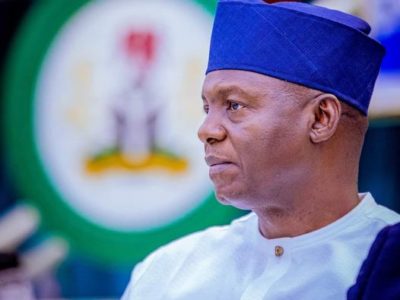Matters eRising Blog
Of tyrants, GEJ, Gov Lamido and Citizen Aminu
 By SEGUN ORUAME
By SEGUN ORUAME
Mr. Mukhtari Ibrahim Aminu! You probably don’t know him. He is the Nigerian from Jigawa State now globally famous. More than 500 online new-sites and thousands of web-posts have reported the ‘Aminu’s Facebook saga’. The implication is that over 350 million people of the over one billion that make up global online community have read and assumed their own interpretation of the Aminu’s Facebook saga.
Ten days ago, not even the community around him in Jigawa State would have known much of him. But thanks to the Jigawa State government and thanks to Facebook and the Internet, Mukhtari Ibrahim Aminu is probably more famous than Jigawa State Governor Sule Lamido and the army of politicians who make up the political elites of the sad entity called Nigeria.
Here’s the Aminu’s story if you have not read it: “According to the AFP, 24-year-old Mukhtar Ibrahim Aminu posted a message on his own Facebook page on Jan. 9 which insulted Governor Sule Lamido over the politician’s support for President Goodluck Jonathan in the lead up to the national elections in April. Aminu was arrested in the northern state of Jigawa for being a public nuisance. He was held in prison for several days before being formally charged with defamation and sent back to jail pending trial.
The posting, which has since been removed, is quoted as saying “O Allah destroy Sule Lamido and the rest of his friends,” “O Allah disgrace Sule Lamido and the rest of his cursed friends. O Allah curse Sule Lamido and the rest of his cursed friends …”
As the AFP rightly noted: “While Lamido’s reaction seems extreme such curses are said to carry tremendous importance in Nigeria, with some believing the curses can damage them for life. Aminu’s arrest came despite laws protecting freedom of speech. According to the AFP, “even though newspapers do publish critical columns on politicians, bribes paid to journalists help control coverage in Africa’s most populous nation, and those who don’t fall in line often face threats and beatings.”
The Aminu’s Facebook saga has afforded the global community to comment on Nigeria’s legal system and to offer very cheerless remarks on Nigeria’s traditional media (the print and electronic media). You could feel the sense in which the different parts of the world have interpreted the ‘Aminu’s Facebook saga’ from the different colourations of the news items on Nigeria, Aminu, Jigawa State and Governor Sule Lamido.
What is ‘frighteningly’ joyful about the‘Aminu’s Facebook saga’ is its symbolic representation of the end-times to the silence of free voice by brutal power and abuse of state authority. We are seeing the power of the Internet to challenge the traditional institution of power and coercion; and the immense potential of the New Media to tell the stories, the news beyond the traditional media (oft co-opted or cajoled by established authority) and to rally a greater part of the world against the abuse of power and state processes.
Governor Lamido is human and has a right to feel insulted by Aminu’s Facebook slur on his person as an individual and the governor of a state in the Nigerian federation. But his right to the use of coercion and the silence of free voice is not enshrined in the Nigerian constitution. The law also does not assure those, who wield power by consent of the people, the entitlement to use assault to seek redress for insults.
What Governor Lamido and his associates fell back on was the usual use of force by those in power to silence what is perceived as dissenting opinion. But the arrest and prosecution of Aminu didn’t go as expected. Aminu used a New Media tool to express his constitutional rights. He could not have had access to the traditional media to express his dissenting opinion. No newspaper would have dared to give him voice and certainly no radio or TV station would have allowed him that freedom to speak. Aminu found a voice online and for daring to arrest and detain him, Governor Lamido found himself at the centre of global condemnation. The world has certainly changed.
The Aminu Facebook saga raises a new challenge for repressive use of power. It points to the future of the world in the fast emerging New Information Order. Specifically, it gives hope to the suppressed millions in the north and all of Nigeria that have had to contend with the cruel antics of governments who have denied them their inalienable rights to freedom of speech, rights to economic prosperity and proper education.
As the Twitter Revolution in Tunisia has proven, no longer will a people denied their rights to the pursuit of prosperity and happiness be cajoled within geographical boundaries not to speak out against such abuses. Weeks back in Tunisia, people spoke out their minds, shared information and agreed to gather against despotic power via the social media/network online tool: Twitter. Everyday, Tunisians shared twits on the need to mobilize against a despotic regime that had suppressed them for more than two decades. A generation that was not born when the despot of Tunisia entered power had mobilized via a new media tool to chase the despot and his cohorts out of town.
In Egypt, authorities are unplugging the Internet and mobile phones to reduce the potential of people to mobilize and sustain the protest against a regime that has held sway for over three decades. They certainly cannot go far as they are facing the increasing risk of shutting out not just the protesters but the entire economy of Egypt as well as the despots themselves who desire to hold on to power against popular wish. 2011 has certainly proven that the momentum for change in the new world order will be influenced greatly by how much of online networking happens within the global community.
Egyptian authority had thought Egypt’s tiny online presence compared to that of Tunisia will impact little on the ability to mobilize. They were wrong. Facts have proven that even if a country’s online community was to be less than 3% of the total population, an oppressed people will still mobilize online to get the people to gather together in the mortar and brick world. In Egypt, they did and a scared government has shut down itself in attempt to shut down people’s access to the Internet.
We are not likely to go the Tunisian or Egyptian way. But what is significant is that a part of the world, the Middle East with North Africa, known for its zero tolerance for free expression is contending with change 100% influenced by the Internet. Online, and through social media tools, people can get voice outside of the suppressive air of their governments and tell the world their stories. Most importantly, mobilize internally and also get the world to join them in the struggle against tyrannical regimes.
It is upon this online reality that the Aminu’s Facebook saga draws its significance. People can no longer be unduly suppressed with impunity by those in government and expect no reaction or a significant degree of outcry from the global community. Perhaps, Governor Lamido’s greatest folly is not seeing what his president had seen when he signed onto Facebook. President Goodluck Jonathan popularly known as GEJ on his Facebook page regularly interacts with an increasing number of Nigerians winning their trust and confidence while he tries to play brick and mortar politics the way Governor Lamido appears to only know it.
The times are changing and those who can see the signs will not be left behind. GEJ has seen the signs and today has well over 500, 000 active Facebook friends to read and share his postings among millions of Nigerians. Nigeria Facebook statistics as at today shows that there about 3 million Facebook users indicating a population penetration of 1.87% to give it a worldwide position of 38. The United States leads the world with about 149 million users followed by Indonesia (a Muslim country) with about 36 million users. Next is the United Kingdom with 28 million users and then another Muslim country Turkey with 25 million users and finally Philippines with about 23 million to make them the Top 5 Facebook users. Worldwide Facebook ssers as at last week is 619 310 960. The figure grows everyday.
GEJ officially first flagged off his campaign for Nigeria’s highest office on Facebook. He also admitted that he was persuaded by the comments he got on his Facebook page by fellow Nigerians to reverse his suspension of the national football team from international competition. “I have listened to your voices,” President Goodluck Jonathan said in a posting on the social networking site after he had earlier banned the team for two years following their poor World Cup campaign. “I read your comments and took them into account in the government’s decision to rescind the suspension of Nigeria from international football,” President Jonathan said on his Facebook page last year as quoted by the BBC in one report.
If the president of the federal republic knows the power of the Internet and is already talking on Facebook with fellow citizens, there is much hope that government will begin to rethink the way it treats its citizens. Citizens will no longer be cowed from expressing dissenting opinions; they have an extensive network of online communities to speak truth to power. Despots who consoled themselves with the illusion that a tiny insignificant online community cannot disrupt the power equation may look to Egypt and Yemen to see what small access to Information Tools could do.
Besides, the online community is sure to grow exponentially, and countries like Nigeria are likely to have over 20% of their population online within months. What this means is that government must begin to become progressive in words and actions; government must begin to accept the reality of alternative media and learn to be more accommodating; and more importantly, more engaging.
Governor Lamido lost a golden opportunity for practical engagements with Citizen Aminu. He could have tackled Citizen Aminu online with shared arguments on why he is supporting President Jonathan. He would have done more good to the psyche of governance and open a window of discourse for government/citizen engagement. Unfortunately, he missed the chance; misled by the incompetence of associates and advisers steeped in the old fading belief in absolute powers of the ‘potentate’ and brutal repression of those who dare to have alternative voices.
But the governor can take a cue from GEJ. It is not too late to engage the citizen online with a convergence of the new media: audio, video and data to speak with the citizens in the local language and win their conviction not by force but by the persuasiveness of superior arguments. Today with the future does not believe in coercion. Governments that still believe in this have the Internet to contend with. And the Internet is not a friend of tyrants and tyranny. That is the lesson for Governor Lamido.





























